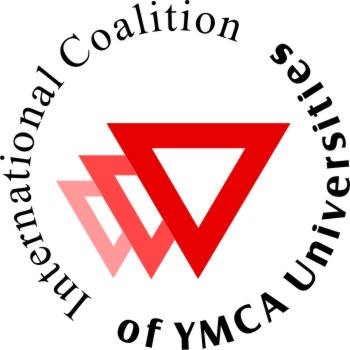Preamble
The International Coalition of YMCA Universities is a network of universities, colleges and professional training institutes belonging to or connected with various national YMCA movements. They are institutions of higher education that provide training to prepare professionals in various fields relevant to the work of YMCA movements. The first meeting of the Coalition took place through the initiative of the International Group of the YMCA of the USA in New Orleans in July 2001. The formal establishment of the Coalition took place on 18/19 November 2001 in Porto Alegre, Brazil where the “Porto Alegre Agreement” ,November 2001 was signed.
The founding members are:
College of Physical Education of Sorocaba YMCA, Sorocaba, Brazil
CVJM-Kolleg, Kassel, Germany
Instituto Universitario ACJ, Montevideo, Uruguay
Instituto Universitario YMCA “Lope Mendoza”, Caracas, Venezuela
Springfield College, Springfield, MA, USA
YMCA of the USA
YMCA Universidad Mexico, Mexico City, Mexico
The co-founding members are:
YMCA India
YMCA England
YMCA Hong Kong
Membership and Criteria for Membership
Every university, college or professional training institute admitted to the Coalition will be considered an active member. The steering committee of the Coalition will evaluate applications for membership and put forward recommendations to the Coalition for consideration based on the following criteria:
- accept and comply with the mission statement and the terms of reference
- comply with quality standards
- have at least one graduating class
- belong to or be connected with the YMCA Movement at area, national, regional or local level
- provide training at post secondary level
Structure and governance
The annual meeting is the supreme decision taking body of the coalition. Every member organization has one vote.
The participants of a meeting appoint a coordinator and a steering committee for three years according to the principle of regional balance.
Meetings
The annual meeting is hosted in rotation among the members and held on the host campus as far as possible.
Finances
As far as possible the meetings are financed by the host. The participant members cover their travel costs.
If a project requires funding, the annual meeting determines the member contributions or explores alternative funding.
Amendments
Any changes to this document can only be made by the members with a majority of two-thirds of the total membership at the annual meeting.
Meeting June 6-7, 2006, Springfield College, Springfield, Massachusetts, USA
 Coalition Terms of Reference.pdf
Coalition Terms of Reference.pdf
PORTO ALEGRE AGREEMENT OF THE YMCA UNIVERSITIES
Background
Traditionally, the Young Men’s Christian Association has been an institution actively involved in providing integral education for children, youth and adults. In the past twenty years, various YMCAs around the world have worked in formal education, mainly at the higher education level. As of 1999 many contacts took place among the heads and executives of schools, universities and colleges belonging to various National Movements: Brazil, Mexico, United States, Uruguay and Venezuela.
The International Group of the US-YMCA supported a meeting of the said YMCAs in New Orleans during the celebration of the 150th Anniversary of the YMCA in North America (July 2001). It was a remarkable occasion for all those YMCA movements that include higher education centers. At this momentous event, the YMCAs shared their various ways of dealing with the issue and explored a possible cooperation agreement.
The final of this process taken place in Porto Alegre, November 19, 2001, on occasion of the 100th Anniversary of the local YMCA – attended, among others, by the following movements: Brazil, Germany, Mexico, United States, Uruguay and Venezuela. They heretofore decide to sign a mutual cooperation agreement, open to future inclusions of other YMCA movements, as follows:
Modern society needs modern institutions of higher education with a clear prospective vision. This is the way to meeting the present cultural demands with a positive and realistic vision based on both major Christian and humane principles and a high academic standard, in other to train a professional that proves useful to the community, her or his family and her or himself. This group assumes the challenge and the commitment of this educational agreement. Therefore, it is the utmost importance to implement integral programs of teaching, research and outreach activities.
Major Principles
- To maintain teaching standards based on the major principles of the YMCA movement.
- To encourage the creation of an inter-movement cooperation structure that respects diversity among the various institutions involved.
- To hold a commitment to this official document at global, bilateral or multilateral levels.
- To give priority to the achievement of high professional qualifications and to continuous education.
- To have unity of criteria and become a stimulus within the area of education.
Main Goal
- To establish a framework agreement for academic cooperation between the participants.
Specific Goals
- To create a university communications network..
- To establish an exchange program for students, professionals and teachers with pedagogical, academic and/ or institutional purposes.
- To train YMCA professionals according to existing demands.
- To develop an internationally recognized trade mark.
- To promote bilateral agreements between the participants.
- To encourage the publishing and distribution of all academic documents and papers produced by the participants.
Strategic Guidelines
- Implementation of an exchange program for students, professionals and teachers with pedagogical, academic and/ or institutional purposes.
- Creation of an internationally recognized trade mark that includes designing of a logo, evaluation of procedures and academic quality control.
- Implementation of a communications network that includes meetings, visits, data sharing and website.
- Publishing and distribution of all academic documents and papers produced by the participants.
The participants of the present agreement hereby request the International Group of the US-YMCA or designate, to temporarily provide all necessary coordination for a period not longer than three years, by the end of which this task will be assumed alternately by the said participants.
Finally, the present draft is hereby signed by the representatives of the above-mentioned institutions.
